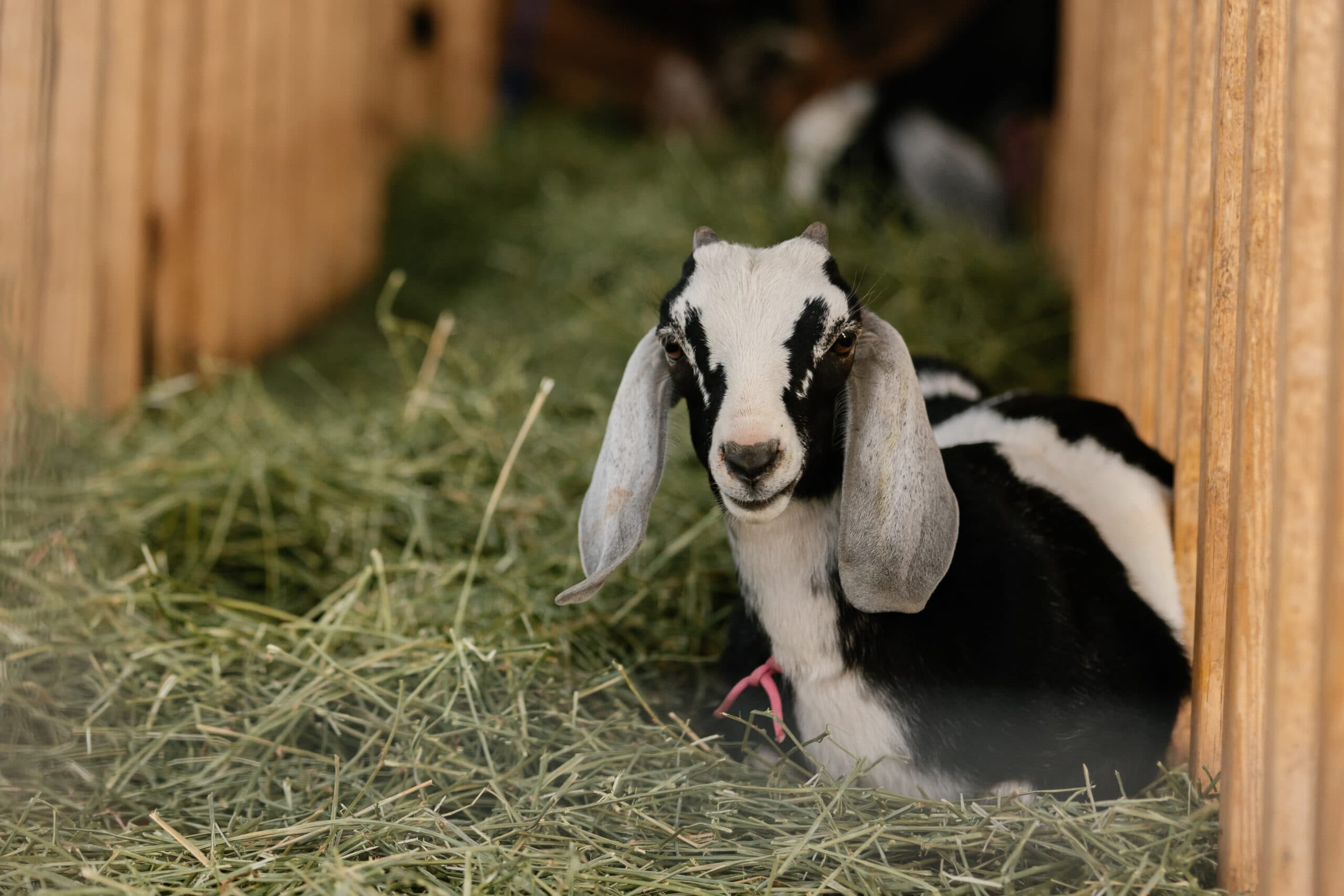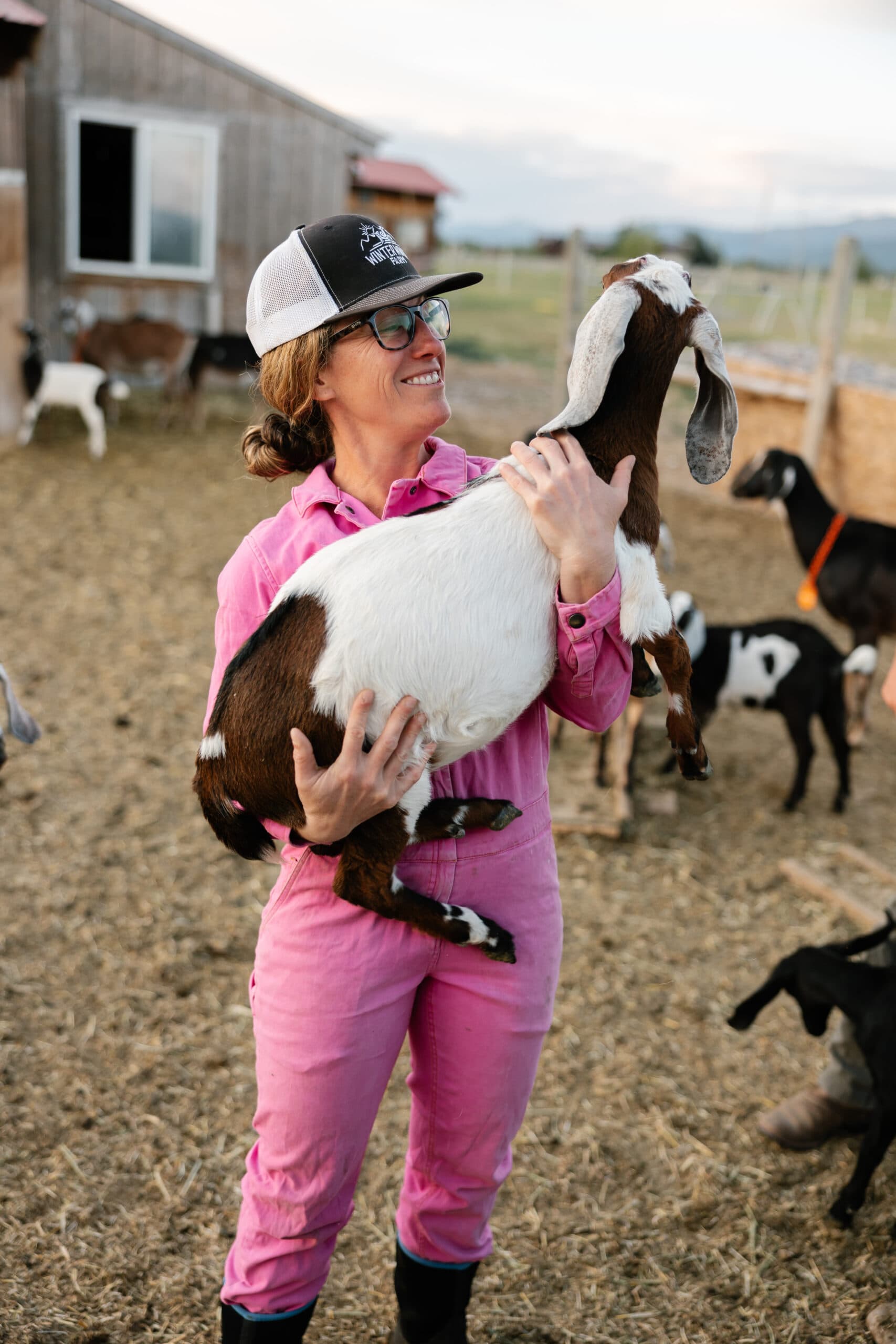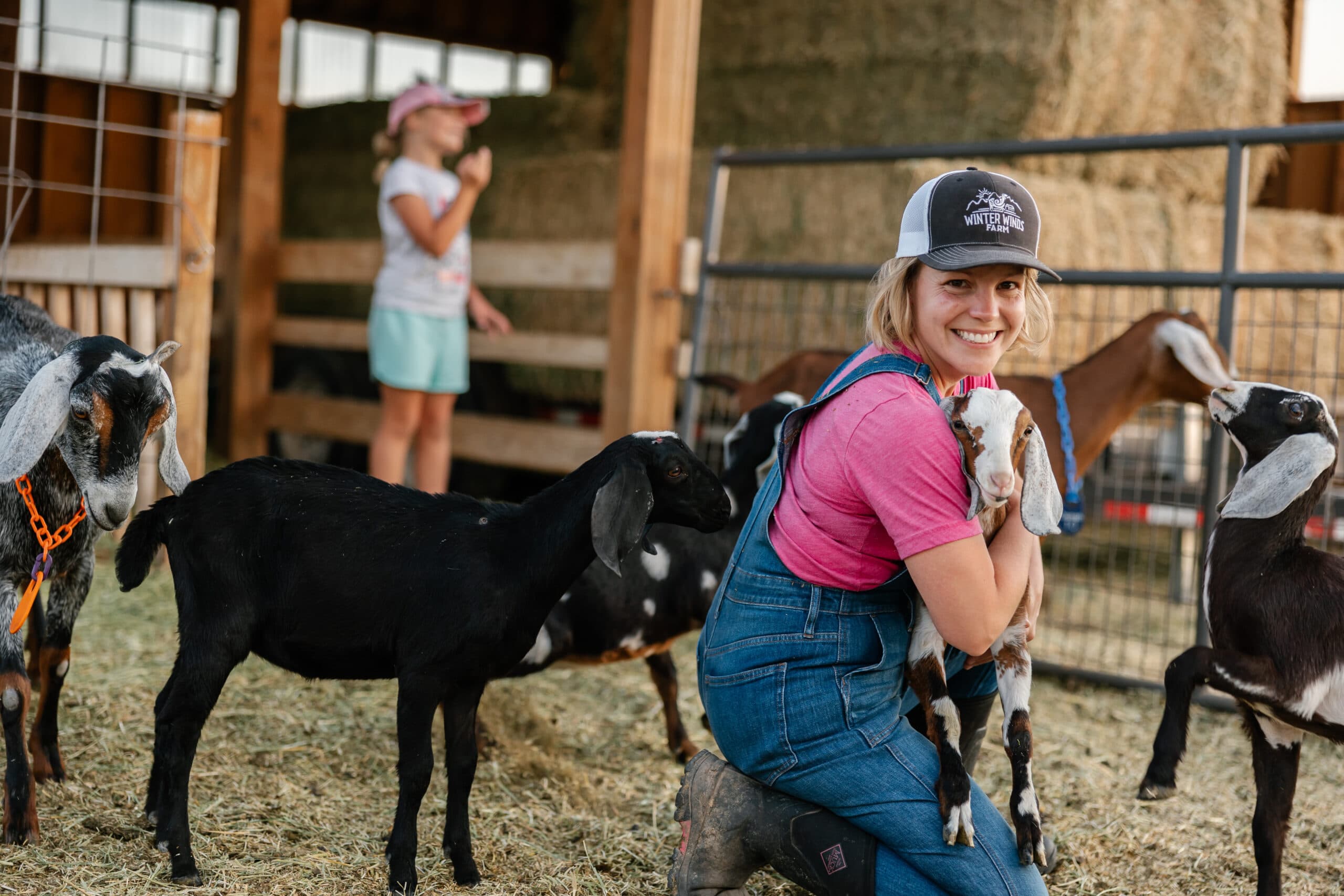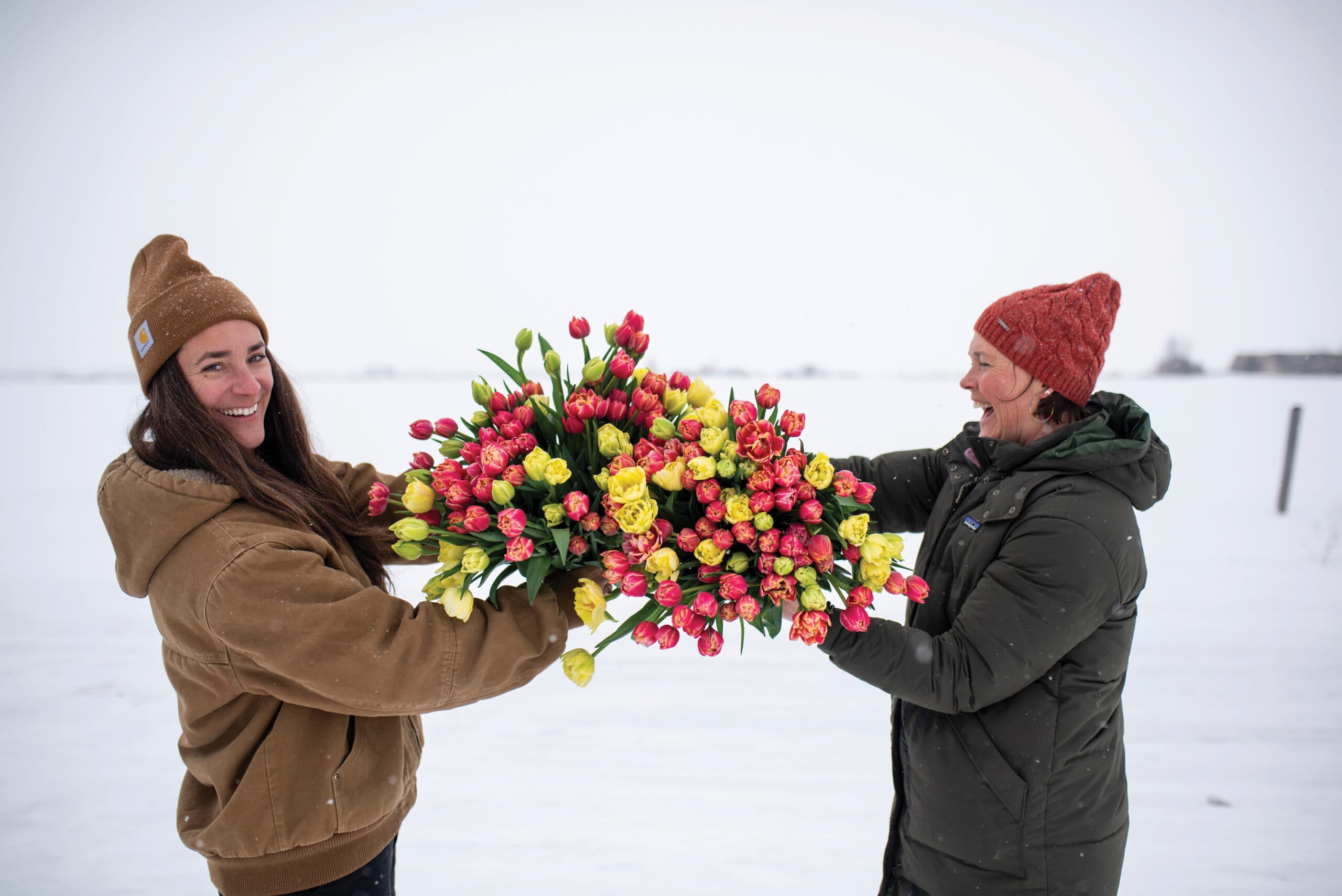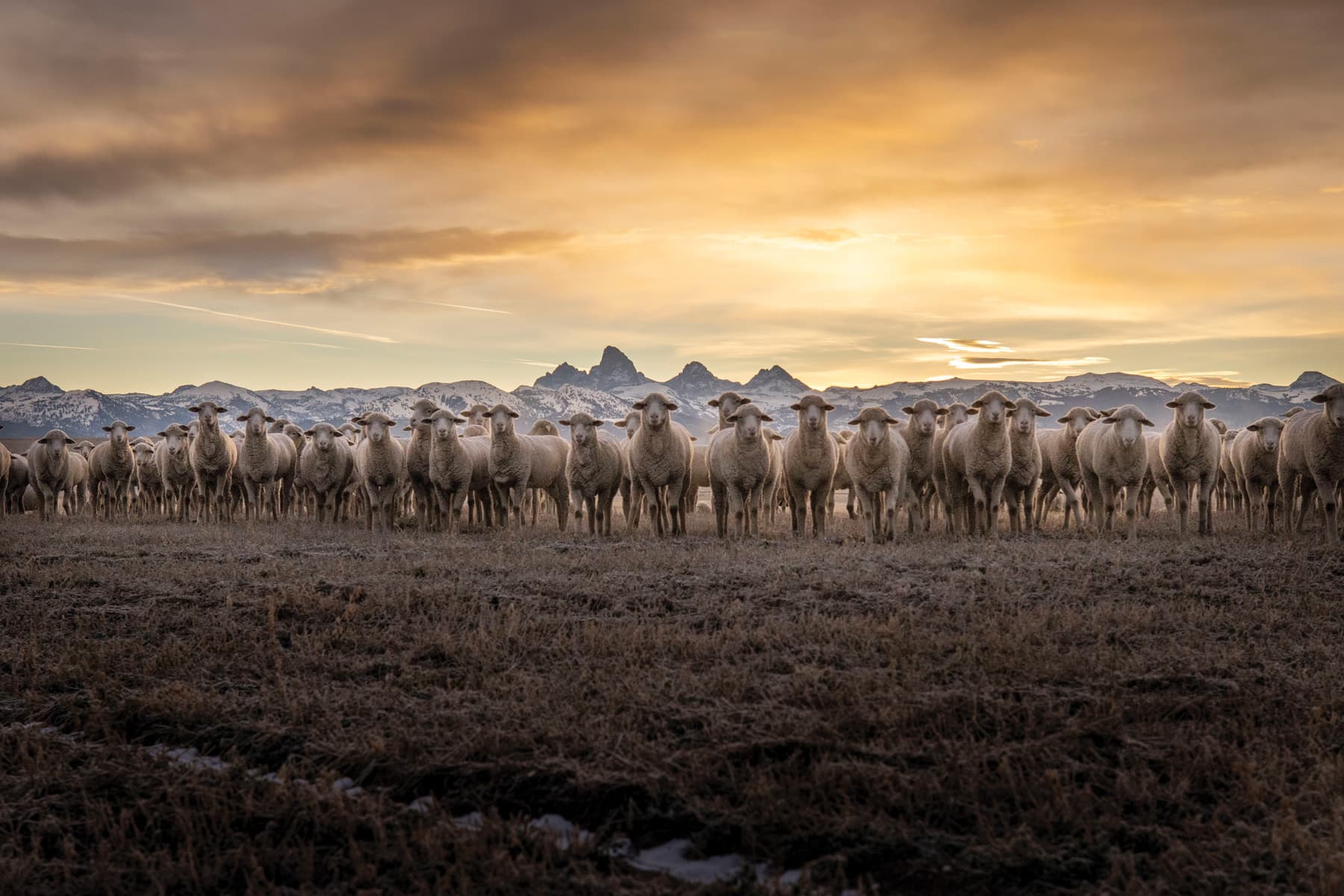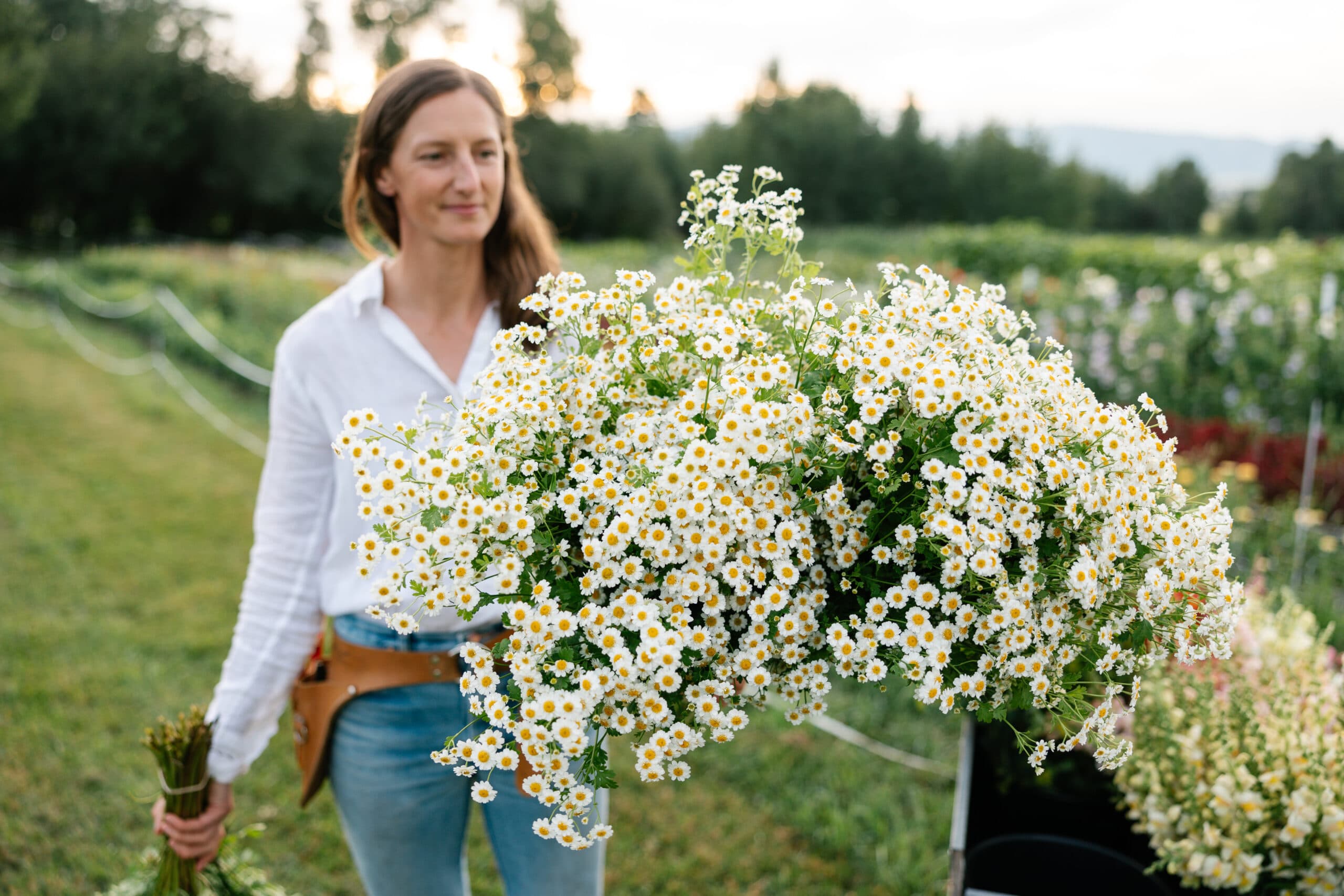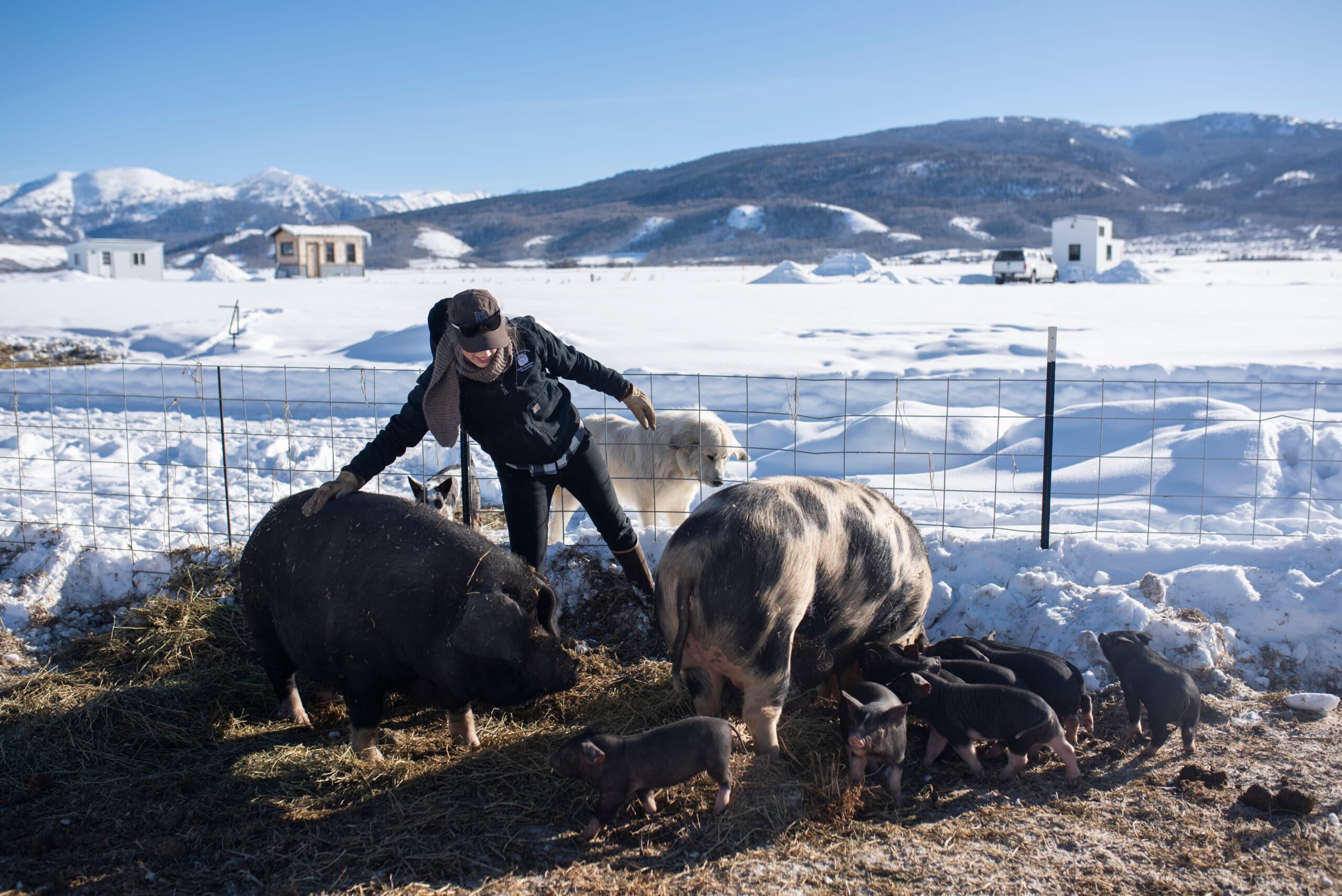Winter Winds Farm
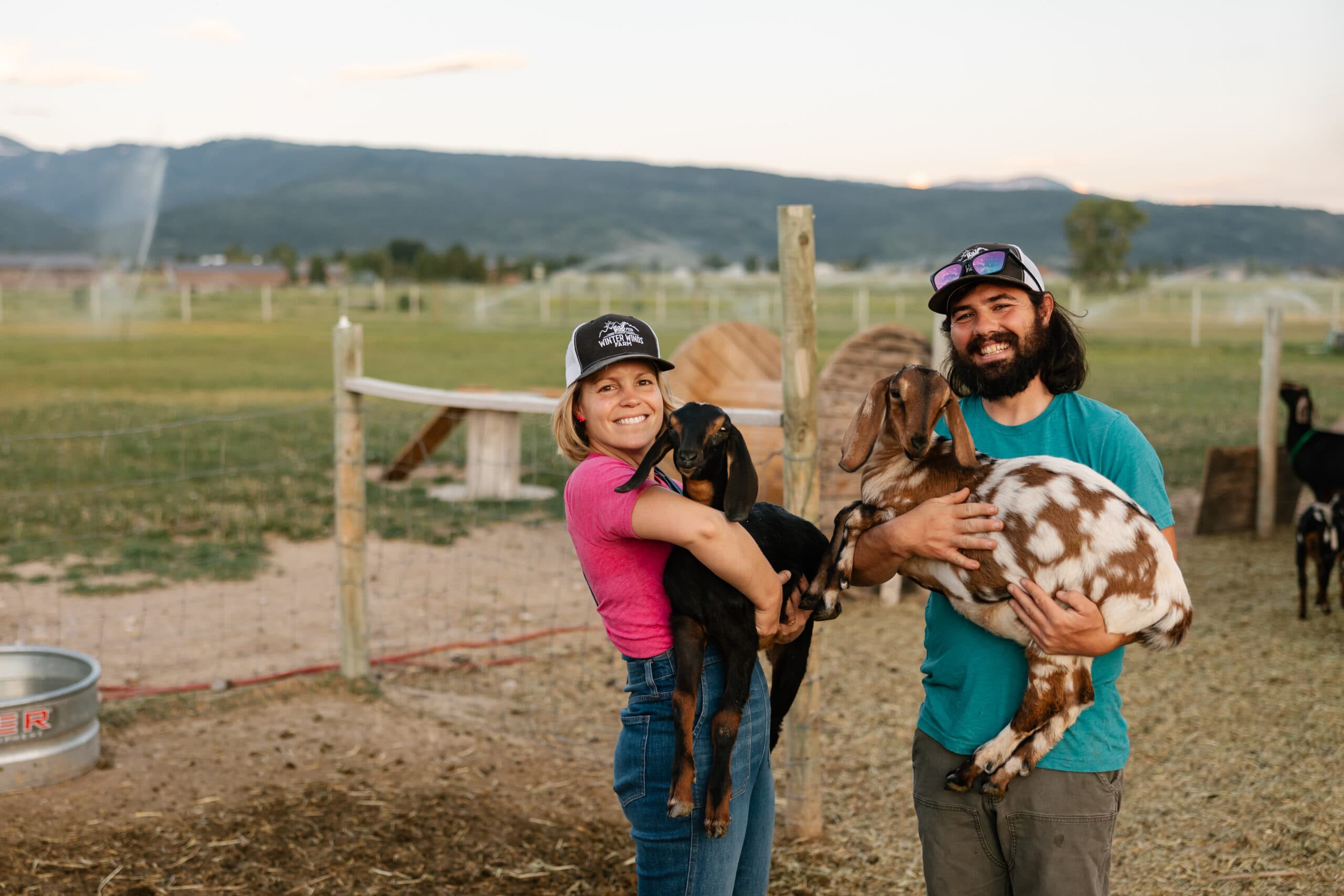
Couple connects to community by way of goat snuggling
There is no question baby goats are cute. Social media is replete with images of baby goats, or kids, frolicking through pastures; baby goats bounding on obstacles; and even baby goats in pajamas.
So cute, in fact, that Winter Winds Farm in Victor has hosted baby goat snuggle sessions for two consecutive springs. At an admission price of fifteen dollars, sessions are wildly popular with school groups, seniors, and the general public. (In fact, TVM editor Kate Hull declares it, “The best fifteen bucks I ever spent.”)
Owners Jessica Konrath and Mark Farmer introduced the snuggle sessions on their farm to help socialize spring kids to human contact and to expose Teton Valley residents to the wonderful world of goats. Encompassing twenty acres between Victor and Driggs, the farm is home to seventy-six goats, as well as to Mark, Jessica, and their dog, Blossom. Since purchasing the farm in the spring of 2020 from the original owners and developers, Nate Ray and Ginny Robbins, Jessica and Mark have taken the leap into a lifestyle centered around goats and goat-milk products.
But to get the full story of the farm, we need to rewind to 2015 when Jessica and Mark were living in the Washington, D.C., metro area, where Jessica’s romance with goats began. As Mark tells the story, Jessica had endured a rough week at work and saw an ad for goat snuggling at a regional farm. The farm was a three-hour drive one way, so she spent an entire day traveling to snuggle the goats and make the return trip home. The excursion became an annual tradition and, as Mark recalls, “She always came home happy.”
Fast forward a few years, when Mark and Jessica discussed their future and realized they needed a big change. They wanted to move west and have goats! Growing up in Cottonwood,
Idaho, not far from Grangeville, Mark was no stranger to the region or to small town life. And Jessica honed the vision further, expressing her desire to get married on a goat farm. Cue her Google search: “goat farm wedding Idaho.” As fate would have it, Winter Winds Farm popped up online, for sale by Nate and Ginny. Mark and Jessica decided to make it happen.
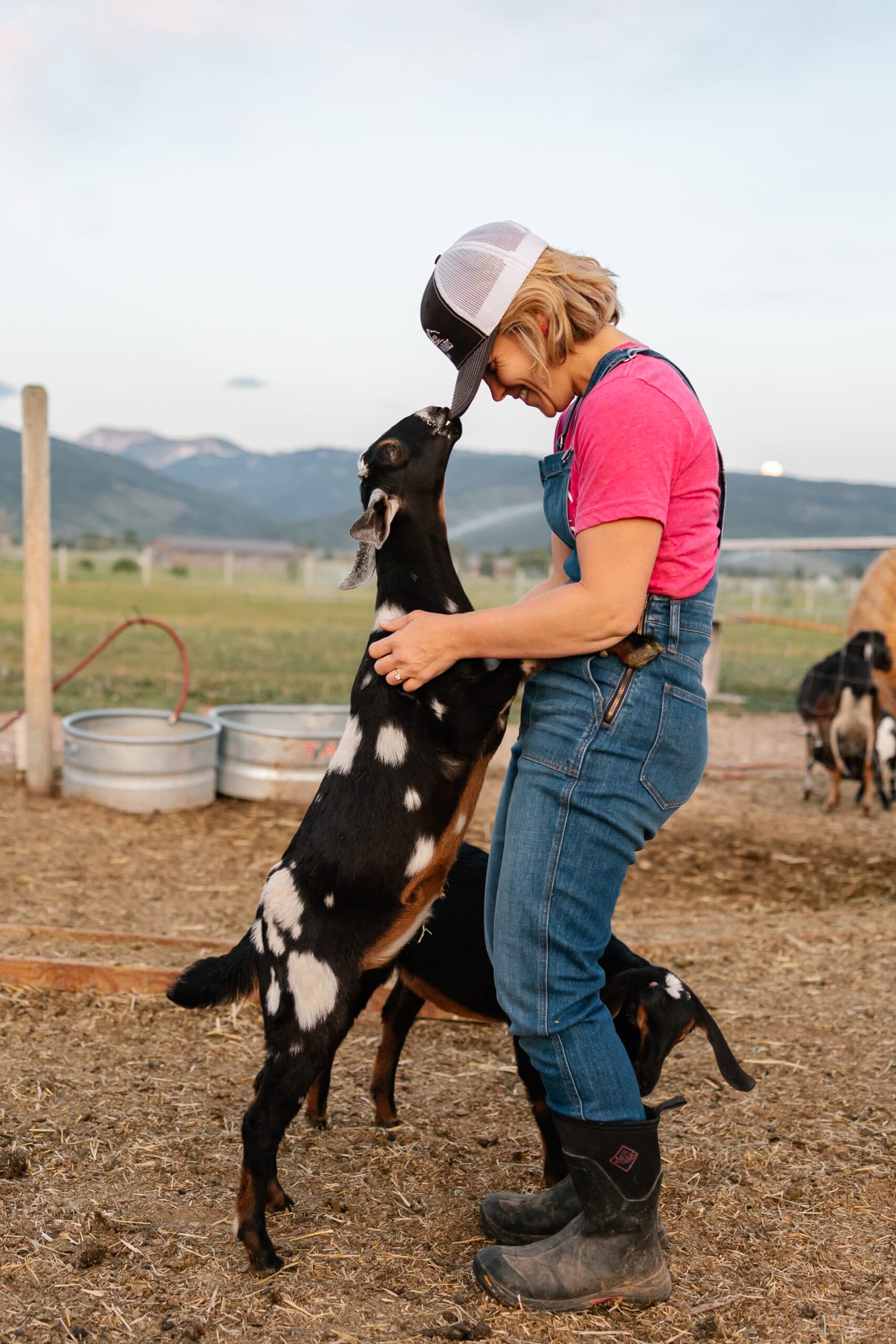
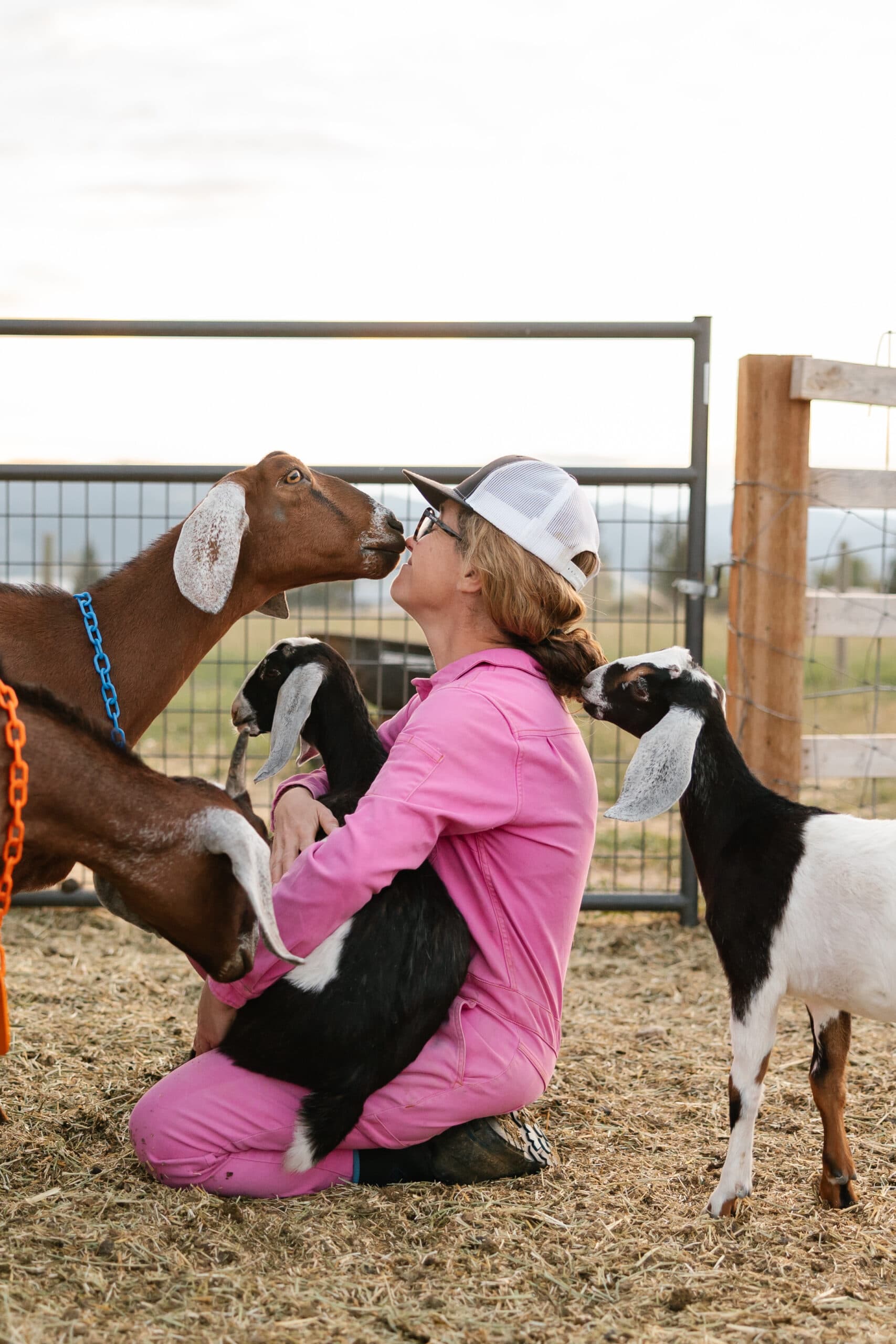
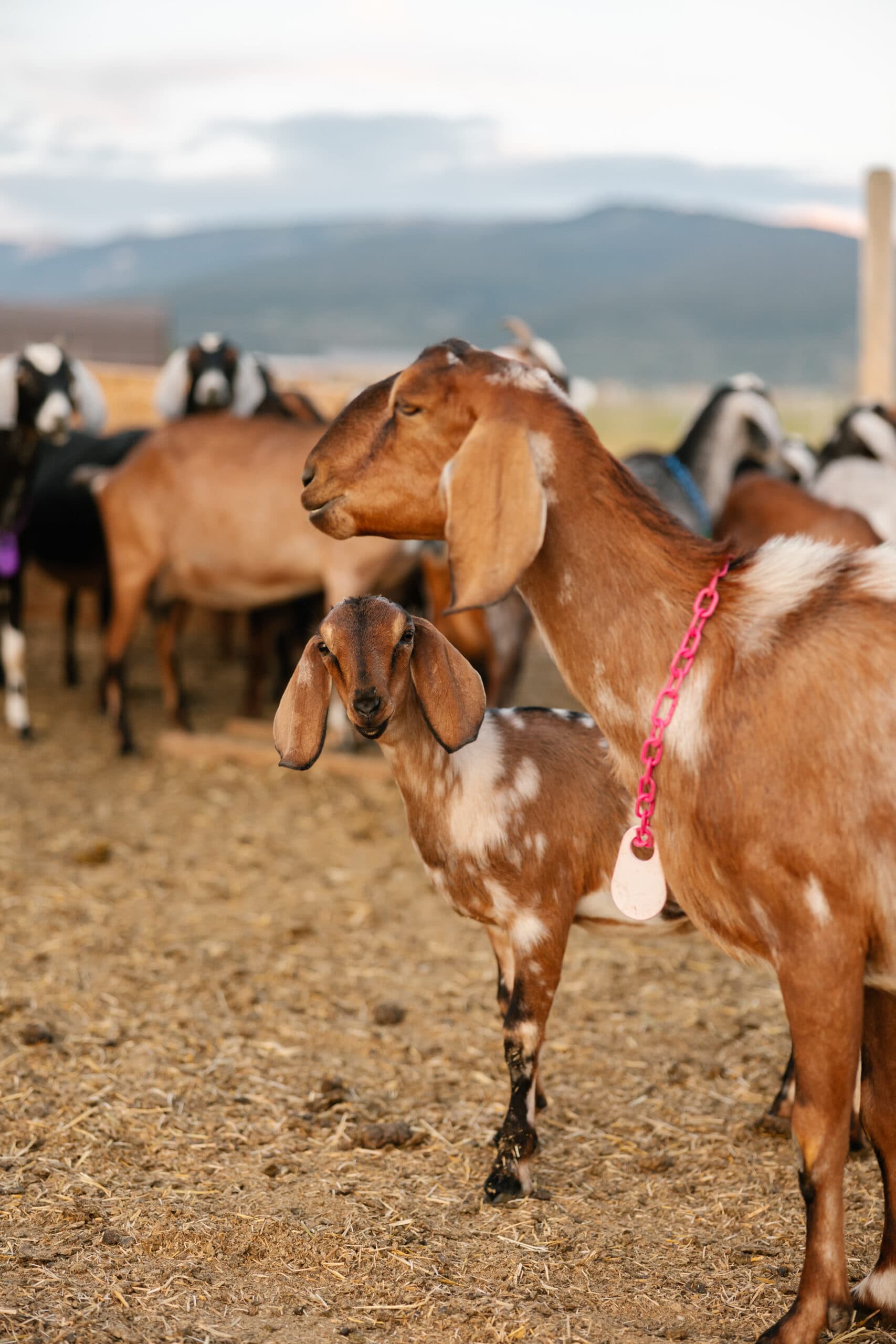
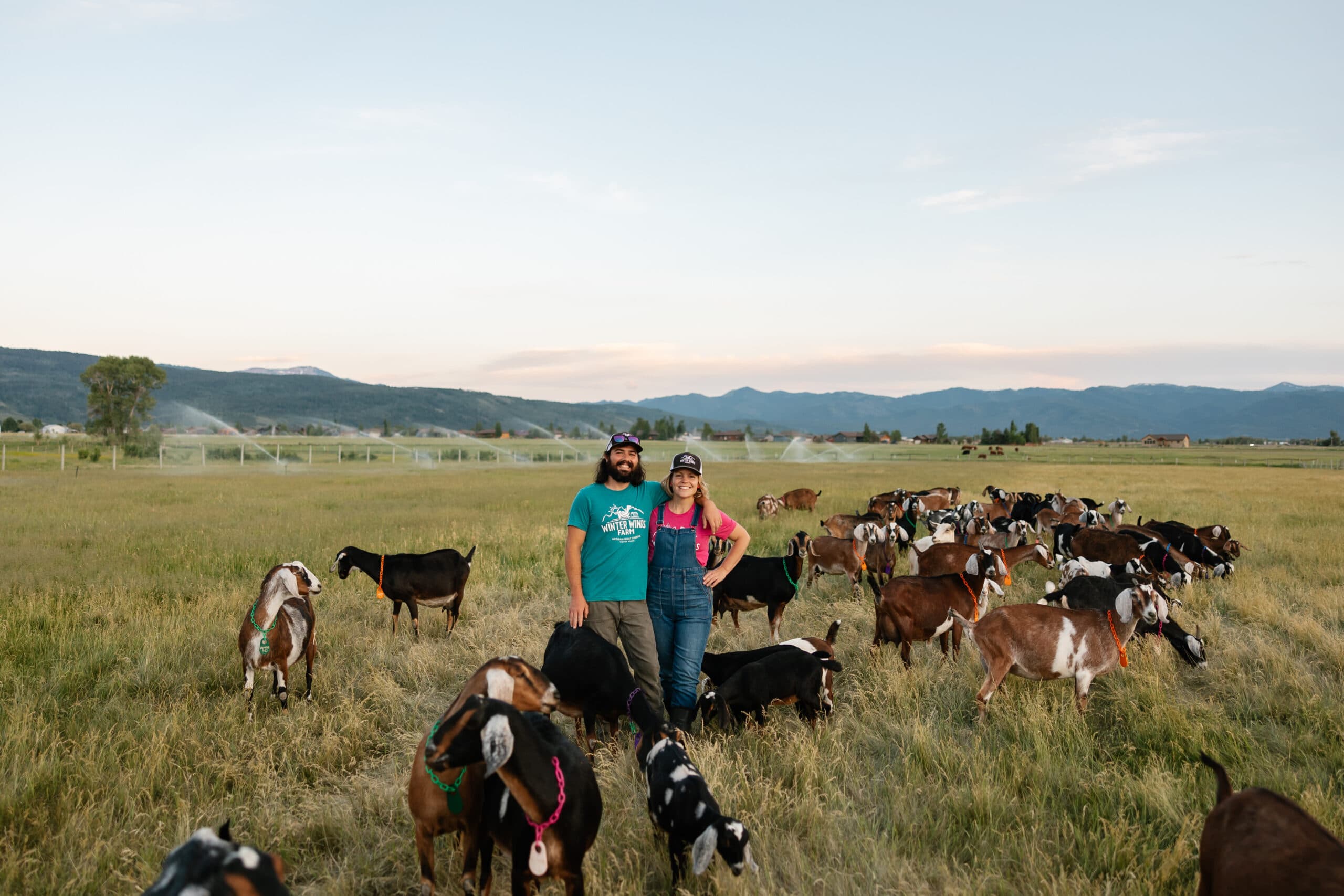
The sale specifics were especially attractive, since Nate and Ginny were offering to train whomever purchased the farm. “It couldn’t have been a better opportunity,” Mark says. “They were as hands-on as we needed them to be. Their generosity was crucial.” Also key to the transition has been Lacey McNeff, an American Cheese Society certified cheese professional and “senior cheese maker,” as Mark and Jessica call her. An employee of the original farm, Jessica describes Lacey’s cheese-making skills and expertise as “critical and essential” to the mix.
Two years later, Jessica and Mark are fully immersed in the farm, working beyond full-time when kidding begins in April. Then, in May, milking and cheese-making commence and last until November. That’s when the milking goats are “dried up” until next year’s selections are bred, and kidding resumes the following spring.
To make it all happen, Jessica maintains her day job, working remotely for two nonprofit clients in Virginia. She also milks the goats twice daily for two and a half hours each session. Lacey makes cheese five days a week, while Jessica pitches in for one additional day. Mark is the self-described CFO, “chief farming officer”—marketing year-round to stores and restaurants, including weekly attendance from June to October at three farmers’ markets, one in Driggs and two in Jackson. Completing the team is Jessica’s brother, Michael Konrath, who moved from Wisconsin to join the farm in August 2021. Titled “junior farm hand,” his superpower is a keen ability to get timely repairs done on farm machinery.
The result of this intensive collaboration is an array of celebrated goat-milk products, including seven cheeses and two soaps. Restaurants in Teton Valley and Jackson feature Winter Winds cheeses on their menus. Stores as far away as Boise Co-op stock their farm products, as do numerous local merchants. The most popular cheese variety is Teton Tomme, a sharp, nutty cheese that, according to Mark, requires “six months of patience” for the flavor and texture to age. Most unusual are the smoked chevre and robiola, a buttery and melt-in-your-mouth variety that is Jessica’s first addition to the lineup.
“The same recipe can be used by two creameries and the results will be different,” says Mark, “because the cheeses will take on the unique flavor and characteristics of the farm where they were made. The goat’s diet, the type of forage available, the temperature, climate, and season of the year all affect the milk and the cheese that is produced.”
The grander vision of the farm extends beyond tending goats and marketing products. As Mark explains, it’s all about building community relationships. For unique product ingredients, the farm seeks out local sources from small producers like Chasing Paradise (more on page 33), Jackpine Lavender, and Alpine Air Coffee Roasting. High protein whey, a by-product of the cheese-making process, is distributed free to local individuals for animal feed. After Halloween and Thanksgiving, the farm accepts donations of pumpkins for feed; and, after Christmas, forest-
harvested trees—which the goats relish. In the spring, when the goat enclosures are cleaned out, the farm offers you-haul manure gratis. For Mark, these exchanges represent opportunities to give back and educate. His previous career in international education policy in D.C. entailed “big picture” themes lacking in tangible satisfaction. In contrast, he says, on the farm every single day has real-world impact.
Looking to the future, Lacey sees a great deal of opportunity for growth and plans to continue adding new cheeses, like the recent additions of feta and cheddar. With a background in education, she’s also excited about classes the farm began hosting in 2021, including an adult workshop and elementary school field trips with nonprofit Mountain Roots Education.
As for Jessica, it’s still all about the animals. She looks forward to building new and deeper relationships with the goats, including the spring’s new kids and the retired milkers who’ve moved to a “dry herd,” honoring their service and years of productivity.
Turning back to the inception of their journey, Jessica’s original goal was fulfilled last summer when she and Mark were married—to each other and now to the farm.
